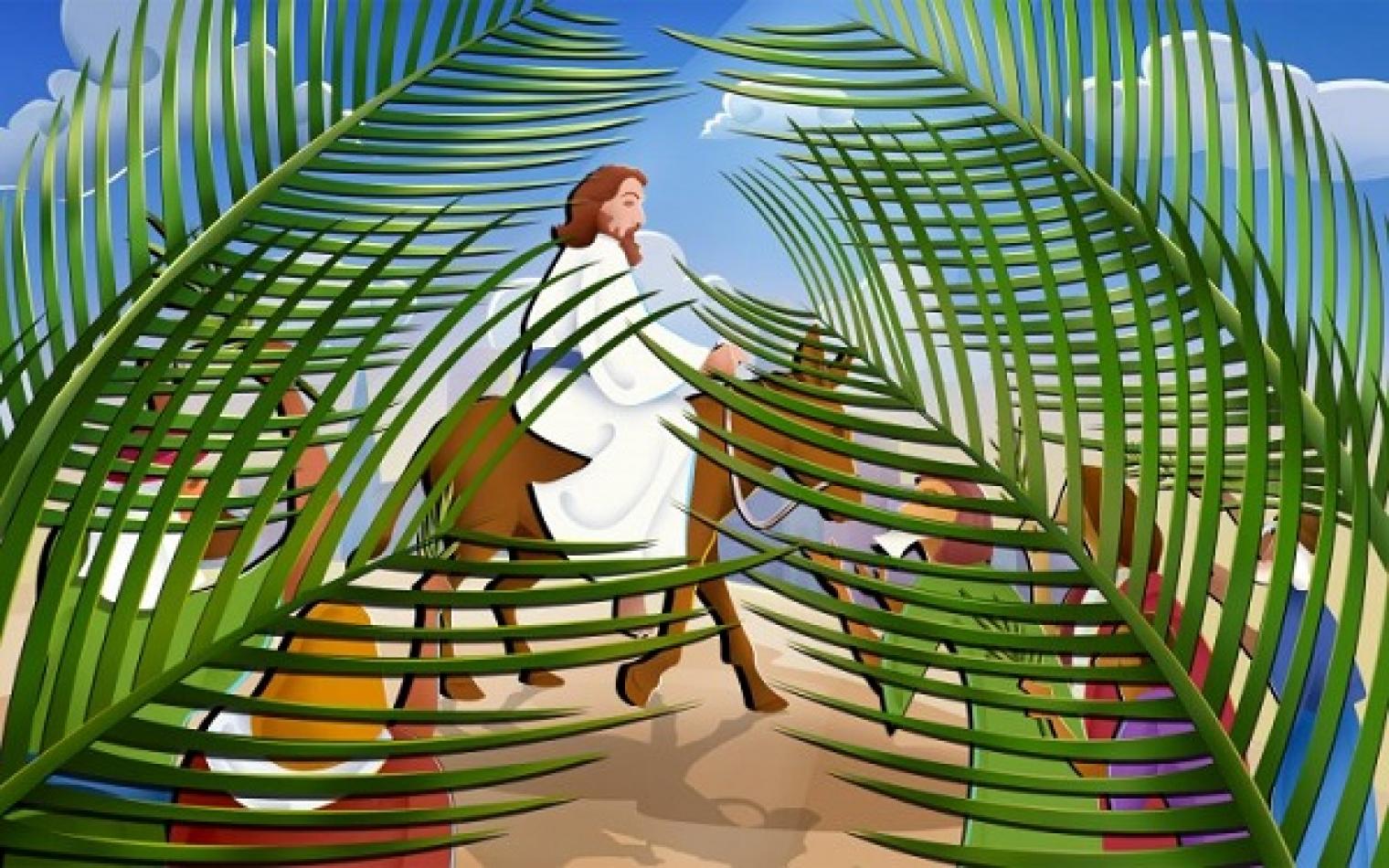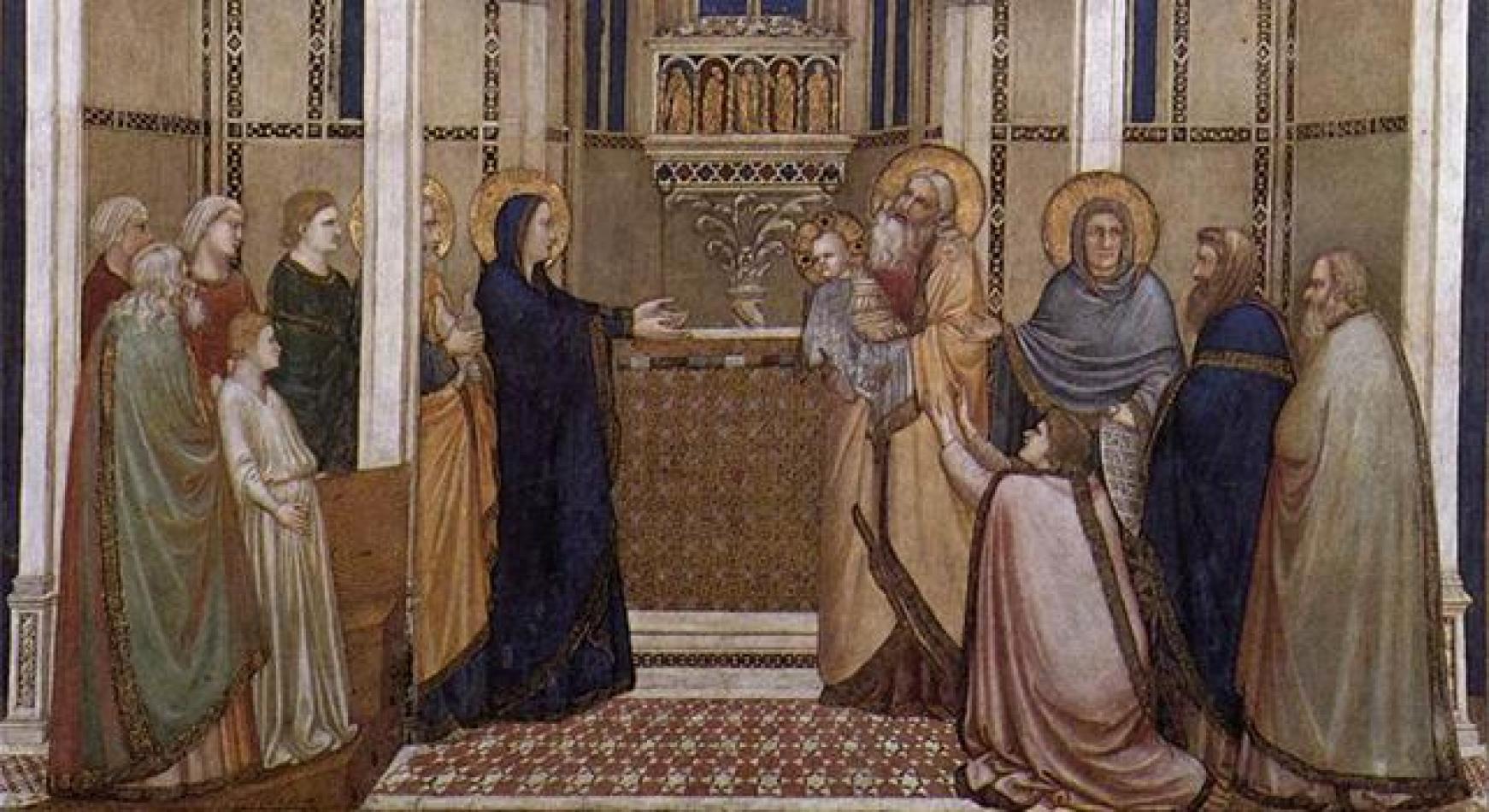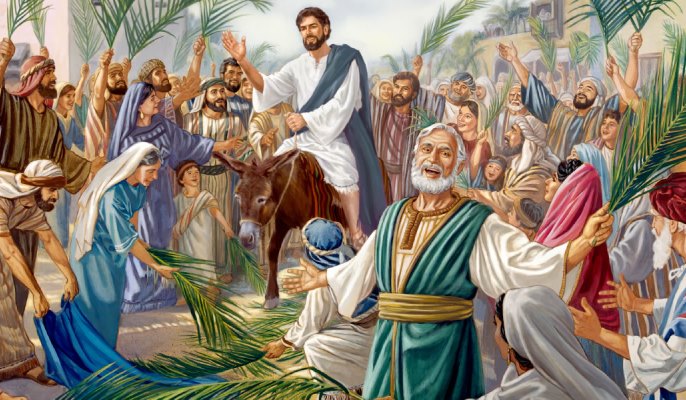Daniel Comboni
Comboni Missionaries
Institutional area
Other links
Newsletter
All the evangelists devote so much space to the passion and death of Jesus. The following outline and the facts are basically the same, though narrated in different ways and with diverse perspectives. Each evangelist then puts in episodes, details, underscores that are his own. These show the care and interest for some themes of catechesis, considered significant and urgent for their communities. Today’s version of the story of the passion being proposed to us is that of Luke.
Gospel reflection – Luke 22:14–23:5
Fernando Armellini
All the evangelists devote so much space to the passion and death of Jesus. The following outline and the facts are basically the same, though narrated in different ways and with diverse perspectives. Each evangelist then puts in episodes, details, underscores that are his own. These show the care and interest for some themes of catechesis, considered significant and urgent for their communities. Today’s version of the story of the passion being proposed to us is that of Luke. In our commentary, we will only highlight the specific aspects.
In his Gospel, Luke never lets the opportunity to emphasize the goodness and mercy of Jesus slip. He does so even during the passion.
Self-defense is the instinctive reaction in the face of an attacker who wants to kill. When given the news that, during a scuffle, a mobster had the worse and was injured, many rejoice and some people become sad if someone rescued him.
The reaction against the aggressor is spontaneous, understandable and, from the human point of view, also justified. In the Garden of Olives, the apostles did not hesitate to implement it. To prevent the abuse of power, violence, and injustice, the first thing they think to do is put the sword up. The phrase: Lord, shall we strike with the sword? In the original text is not presented as a question but as a decision: “Lord, we now have recourse to the sword.” And indeed, before waiting for the opinion of the Master, one of them goes to blows and falls off the right ear of the high priest’s servant (Lk 22:49-51).
Jesus intervenes and severely rebukes Peter for the rash action done. Then—and this is the detail that only Luke mentions—he takes care of the wounded and healed him (Lk 22:51). The message that the evangelist wants to give is clear: the disciple not only cannot attack anyone but is always ready to remedy the troubles caused by others. He also takes care of those who did and still continues to want to hurt him.
The Christian has opponents; he cannot not have because, like the Master, he has to deal—even the hard way—with those who make choices of death, deform the face of God, pursue an unacceptable project of man and of society. But the Christian has no enemies. The enemy is one who must be annihilated, crushed, humiliated, and eliminated. The opponent is not destroyed but faced to help him grow, break free from his bondage. Weapons are used by those who have enemies to defeat, not by those who, as the only mission, has to transform adversaries into brothers.
A little further on we find another touching particular.
As Mark and Matthew, Luke also says that, after denying the Master in the house of the high priest, Peter went out and wept. He alone notes that the Lord turned and looked at Peter (Lk 22:61-62) and he uses the Greek word emblepo (look inside) and not blepo (see).
Jesus’ gaze is moving: it is not a reproach, but a gesture of sympathy for the weakness of his disciple. We consider the outward action, the cowardly gesture, vile words of Peter. Jesus, as he usually does, looks inside, sees the heart of his disciple and discovers that he does, yes, a cowardly act, but deep down he loves him and remains faithful. Stressing this look, Luke indicates to Christians of all times how they should consider their own and their brothers’ fragility: they are looked at with Jesus’ eyes; eyes that instill confidence and hope, eyes that discover, even in the biggest sinner, a spark of love and help him to restart.
During the passion, the disciples do not make a good impression: Judas betrays, Peter denies, all others flee (Mk 14:50). The evangelists point this vile behavior. Only Luke seeks to attenuate the responsibility of the apostles. He does not mention their flight, in fact, he says that, on Calvary, “all his acquaintances stood at a distance” (Lk 23:49). He does not relate the reproach of Jesus to Peter: “Simon, are you sleeping? Couldn’t you stay awake for one hour?” (Mk 14:37). He also finds an excuse to explain their sleep: “They were worn out of grief” (Lk 22:45).
Luke is the example of the shepherd of souls who, while not justifying sin, he understands it, attributes it to ignorance, human misery that unites us all. He does not emphasize the mistake done, does not accuse because he knows that who is humiliated and ashamed, who does not feel welcomed and respected despite his weaknesses, ends up dangerously withdrawing in himself and makes any way to recovery impossible.
There were martyrs who died despising those who killed them and threatening on them the vengeance of heaven: “do not think that you are going to remain unpunished!”—says one of the Maccabees to his executioner (2 Mac 7:19).
The disciple of Christ does not know this language, no swearing, no cursing, no invoking of punishments against those who do evil (Lk 6:27-36). Even in the most dramatic moments he just says words of love.
This attitude is the only one compatible with that of the Master. He—says Peter in his letter to the persecuted Christians of his community—”did not return insult for insult and, when suffering, he did not curse” (1P 2:23).
In the passion narrative, Luke relates a phrase that every disciple has to keep in mind when he is called to bear injustice, oppression, harassment. Only Luke records that, moments before his death on the cross, Jesus still has the strength to say: “Father, forgive them for they do not know what they are doing” (Lk 23:34). He was not referring to the soldiers, intent on dividing his garments, but the real culprits for his death: the religious authorities of his people. Jesus did not limit himself to ordering his people to always forgive and without conditions, but he gave the example. It will be imitated by Stephen, the first martyr who, with bended knees under the blows of stones hurled at him, will cry out loud: “Lord, do not hold this sin against them” (Acts 7:60).
We all know by heart the story of the institution of the Eucharist: we hear it repeated at every Mass. Perhaps not all of us know that only Luke refers to the Lord’s order: “Do this in memory of me” (Lk 22:19).
Undoubtedly Jesus wanted that the rite of the breaking of bread and sharing the cup repeated over the centuries by the Christian communities, but his words are not only an invitation to repeat his act liturgically. The “breaking of bread” for Jesus has an extraordinary symbolic value. In it he wanted his entire life, broken and given to people summarized and represented.
“Do this in memory of me” is an invitation to assume his own choice. Only one who enters into this logic of the Master, only one who, like him, breaks his own life for others can “break the bread of the Eucharist” with purity of heart. Otherwise repeating, the liturgical gesture is reduced to an empty ritual and, sometimes, even hypocritical.
What is the disease, the cancer that destroys our communities? It is the frenzy to occupy the first places to be superior, to dominate, to impose upon the other, to get privileges and honorary titles. It is this passion that provokes envy, criticism, gossip petty, divisions, and discords among Christians.
This disease is not of today. The Gospels report several unpleasant incidents, frequent and petty arguments between the apostles eager to define the priorities, to determine who among them was the greatest. They did not in any way accept the proposal of the Master to be small, to come down to the last place, to be at the service of the poorest, to become slaves of others.
How to make Christians understand that this teaching of Jesus is the fundamental law upon which the community is based? Luke has an idea: to present this theme at the Last Supper (Lk 22:24-27). Placed in this context, the Master’s words take on a maximum value: they become his testament, his final request. Therefore, they should be regarded as sacred and inviolable. Who of us would dare to not do what the father asks before he dies?
After the institution of the Eucharist—Luke says—the apostles began to scramble because each of them wanted to be first. Jesus then took the floor and explained that, in the new community, the authority was not to be understood according to the criteria of this world. What do the leaders of nations do? They have the power, they command over others, accumulate money, demand greater respect, claim privileges, personal aircraft. This should not be so in the Church! In her, the authority is the only service. Mind you: to serve does not mean to decide on behalf of others, to impose one’s way of thinking, to force others to do what one believes is right. This is still to dominate. To serve means to occupy really the last place, to respect, to dialogue, to understand, and to find for each a ministry to be carried out with joy for the brothers and sisters.
The term agony for us shows the last moments before death. Its etymological meaning, however, is different. It indicates the fight, the competition of athletes and it is used in the Gospel story in this sense.
From the beginning of his public life, Jesus was confronted in combat with the forces of evil—with Satan—and won. But the fight did not end after the first clash. Luke notes that “when the devil had exhausted every way of tempting Jesus, he left him, to return another time” (Lk 4:13).
Here, in fact, at the beginning of the story of the passion, the enemy returns for the final assault: “the feast of unleavened bread was drawing near … Then Satan entered into Judas.” The forces of evil are embodied in one of the twelve apostles and unleash the offensive.
Jesus, as every athlete before the competition, must prepare himself and Luke—more than the other evangelists—emphasizes how he prepares himself: with prayer. The story of the agony begins with the recommendation of Jesus to the disciples: “Pray that you may not be put to the test,” then he continues: “he went away a little further and kneeling down, he prayed… Having entered in agony he prayed more earnestly … Then he rose from prayer … And he said the disciples: Get up and pray” (Lk 22:39-46). An insistence on prayer which aims to indicate to all Christians how to obtain victory.
In this context, Luke introduces some significant details. He first says that “an angel from heaven appeared to give him strength” (v. 43). It is the effect of prayer. When the Bible speaks of angels one must not immediately think of spiritual beings who take human form. They often indicate a revelation of God that took place in the person. In Gethsemane, Jesus was tempted to escape and to choose different paths from those tracked by the Father. Prayer, dialogue with the Father, has made him understand the meaning, the value of his death. He asked the Father to take the cup from him and his prayer was answered: he was not spared from suffering, not taken away from death, but was enlightened and, supported by the Spirit. He gave his unconditional adherence Father.
Luke wants to tell every disciple who, so as not to be overwhelmed by the temptation, to overcome human weakness and fragility, need to pray “intensely,” as the Master. In the same context of Jesus’ preparation for the upcoming test, Luke, the physician, notes another detail: “As he was in agony, he prayed even more earnestly, and great drops of blood formed like sweat and fell to the ground” (v. 44). The traditional interpretation explained this as an effect of Jesus’ discouragement. But this does not make sense after the consolation given to him by the angel. The phenomenon (hematohydrosis)—known in antiquity—for the evangelist assumes a significance tied to competitive sports: It indicates the tension of the athlete in the vicinity of the race. He wants to tell us that Jesus is very concentrated, sweats, and is seized by trembling. He knows that he is going to deal with “a strong man, well-armed,” but he also knows to be infinitely stronger (Lk 11:21-22).
There is another episode that only Luke relates: Jesus’ encounter with Herod. He was the son of the famous Herod who, for fear of losing power, had ordered the killing of the children of Bethlehem (Mt 2:16). He was neither a shrewd politician nor a maniac like his father. He was only a weak, corrupt, a man with no personality. Several times he had heard of Jesus and the miracles he performed. He imagined that he was a sorcerer, a soothsayer, an expert in the occult arts. When, during the passion, Pilate sends for him to hear his opinion about the accusations against him, he rejoices immensely. He hopes to see some miracle. To him, however, Jesus does not answer not even a single word. Why? The emphases on Herod’s moods are significant: first he feels a “great joy” (v. 8), then, after the disappointment at not getting what he expected (v. 9), he goes to insult and finally to mockery (v. 11). The Greek word translated to insult really means: to destroy. For Herod who was only interested in miracles (Lk 9:9), Jesus does not count anymore.
Luke wants to warn those who seek Jesus only as a doer of wonders: they will not receive any response. They will not find what they are looking for because he does not lend himself to this game. Christianity is the place of listening to the Word, is the religion of love and the gift of life for the brothers and sisters, not the market where you can buy prodigies. Jesus calls those who think this way: “Evil and unbelieving people” (Mt 16:4).
Luke is the one who, more than any other, speaks of women who, during the public life, accompanied the Master (Lk 8:1-3). He is also the only one who says that, along the way to Calvary, Jesus meets a group of women who weep and beat their breasts (Lk 23:27-31). They are not responsible for what is happening, they weep for the sins of others. Stressing this particular, Luke wants to, once again, take up the defense of the weak, of those who pay the consequences of the sins of others. They are the men who, many times, create disasters, unleash wars, provoke violence and the women bear the consequences and cry.
All the evangelists say that Jesus was crucified along with two bandits. They were not petty thieves, but criminals who had killed people. Matthew and Mark report that both insulted Jesus. Luke instead tells the fact differently. He says one outraged him, but the other did not, indeed, he reproached his companion and, calling Jesus by name, asked him: “Jesus, remember me when you come into your kingdom.” The dying Lord answered him: “Truly you will be with me today in paradise” (Lk 23:42-43).
At the beginning of the Gospel of Luke, Jesus manifests himself to the shepherds: the last, despised people, the unclean of Israel.
Then he spent his public life among tax collectors, sinners, prostitutes.
At the end with those who die: not with the saints. Also at the end—it was to be expected—he is among those he most loved: the sinners. On the cross, he has beside him two unfortunate poor ones who have it all wrong in life. He came from God, completed his pilgrimage on this earth and now he returns to the Father. He returns with one who represents all people: a sinner regained by his love.
Fernando Armellini
Italian missionary and biblical scholar





